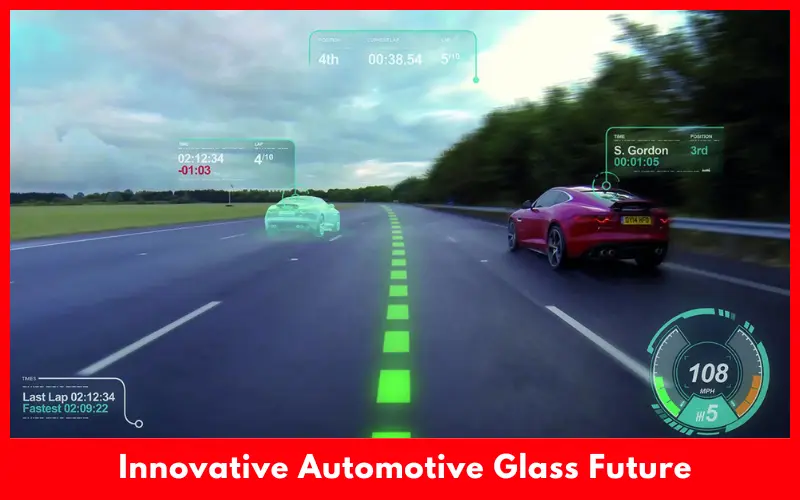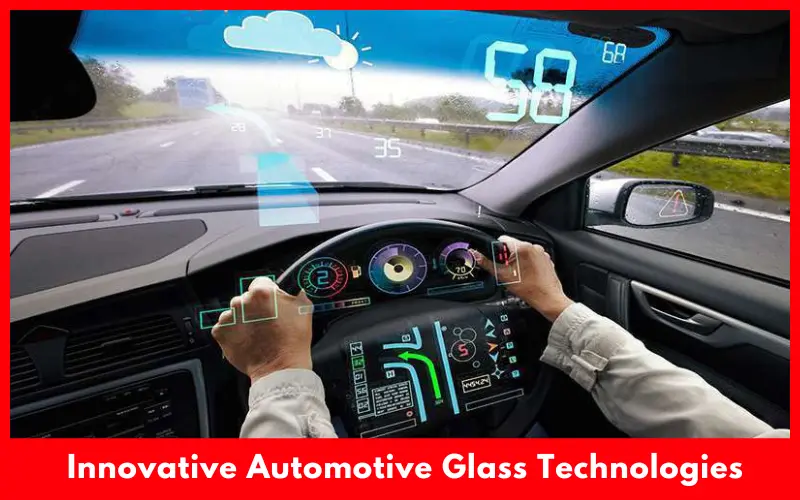Over the years, automotive safety has developed significantly and various innovations have played a vital role in this success. Among these, automotive glass technologies stand out due to their direct impact on driver safety and vehicle performance.
Automotive glass technology improved the visibility and durability of vehicles providing smart glass and heads-up displays. These cutting-edge technologies also make the driving experience safer and more enjoyable.
In this article, we’ll discuss the evolution and current state of automotive glass technologies. We’ll also highlight the contribution of automotive glass technology to enhance safety on the roads.
Article Summary
The Evolution of Automotive Glass
The history of automotive glass is evidence of the industry’s commitment to safety and innovation. In the early days, manufacturers used ordinary glass to make car windows. That glass was risky to use as shattered upon impact.
Laminated safety glass was innovated in the early 20th century which offers greater protection against breakage and made a significant milestone. The manufacturer develops tempered glass that is popular for its strength and shatter-resistant properties.
This evolution makes a smooth way for the integration of advanced technologies in automotive glass, thanks to the more stylish, safety-oriented materials.
Current Trends in Automotive Glass Technology
The automotive industry has developed innovative glass technologies significantly in recent years. They designed glass with enhanced vehicle safety, efficiency, and comfort in mind.
These technologies improve the fundamental aspects of automotive glass and introduce new functionalities.
1. Smart Glass Technology
Smart glass represents a revolutionary improvement of automotive glass technology. It is designed with electrochromic technology that allows the glass to change its transparency based on outdoor conditions or driver preferences.
Smart glass can control the amount of light entering the vehicle. It can also reduce glare that can cause accidents. Smart glass enhances privacy and helps maintain the vehicle’s engine temperature regulation to add comfort and safety to the driver and passengers.
2. HUD (Heads-Up Display) Windshields
If you consider driver focus and safety, Heads-Up Display (HUD) windshields are a game-changer. This technology directly projects important information, such as speed, navigation directions, and alerts, onto the windshield.
It helps keep the driver’s eyes on the road to minimize distractions and enhance reaction time. This way HUD windshields significantly reduce the risk of accidents.
3. Solar Control Glass
Solar control glass is another important advancement in automotive glass technology. This glass is designed to filter out ultraviolet (UV) rays and reduce heat build-up inside the vehicle. It can block harmful UV rays to protect the occupants from sun-related health risks.
It can also enhance the longevity of the car’s interior. Solar control glass reduces heat build-up to lower dependence on air conditioning and improves fuel efficiency.
4. Acoustic Windshield Technology
Acoustic windshield technology minimizes external noise to create a quieter and more comfortable cabin environment. This technology uses a special layer in the glass that reduces sound waves. So driver and passenger don’t feel stress and fatigue even during the long journey.
This technology also enhances driver comfort and improves concentration to ensure safer driving conditions.
The Safety Impact of Advanced Glass Technologies
Advanced glass technologies have a deep impact on vehicle safety. Each innovation provides a safer driving experience uniquely.
Provide Improve Visibility
Smart glass and HUD windshields provide clear visibility to drivers under various light conditions. This way automotive glass technologies improve visibility and make driversa more aware.
These glasses also offer easy access to essential information without taking drivers’ eyes off the road. Smart glass helps avoid accidents, particularly during driving in challenging conditions.
Enhance Vehicle Reliability
Modern automotive glass technologies also improve the structural durability of vehicles. Windshields and windows are made of innovative glass composition.
These windshields and windows are more resistant to impacts and improve the overall strength of the car structure. This provides effective protection to the occupants during a collision.
Offer Advanced Protection
Automotive glass comes with additional safety features. Some windshields are designed to support advanced driver-assistance systems (ADAS). The glasses also include safety features like lane departure warnings and collision avoidance systems.
These features depend on the windshield’s transparency and reliability to work correctly to increase car safety. However, you’ll need to recalibrate these systems after replacing your windscreen to ensure optimal performance.
Challenges And Future Directions
Automotive glass technology has achieved remarkable progress. However, there are still some challenges including the cost of applying these technologies and maintenance issues. It also needs to ensure compatibility with vehicle systems.

The industry is also controlling further innovations and mostly focusing on research. They aim to enhance the functionality and integration of glass technologies. There is also a limitation in developing some features like HUD and more advanced solar control glass. This prevents automotive glass from getting the desired achievement.
Environmental and Economic Features of Automotive Glass Technologies
The environmental and economic effects of automotive glass technology are also crucial. Advanced automotive glass technologies enhance the safety and comfort of the vehicle. It also provides significant environmental and economic impacts.
Reduce Carbon Footprint
The automotive glass industry helps to reduce carbon emissions and improve vehicle energy efficiency.
For example, solar control glass reduces the need for air conditioning. This helps reduce fuel consumption and ensure minimum use of carbon.
The lightweight nature of modern automotive glass also improves fuel efficiency to reduce the vehicle’s overall environmental impact.
Cost-Benefit Analysis for Consumers and Manufacturers
Advanced glass technologies add a unique set of economic considerations to vehicles. These technologies provide long-term benefits to the consumers. For example, consumers can enjoy reduced fuel, maintenance costs, vehicle longevity, and resale value, making advanced glass technologies a worthwhile investment.
However, it’s challenging for manufacturers to balance the cost of including these technologies while maintaining market competition. But the good news is that the demand for eco-friendly and safe vehicles increasing rapidly. This provides a strong market incentive.
Advanced glass technologies can also reduce warranty claims and increase the manufacturer reputation in the long run.
The Role of Policy and Regulations
Government policies and regulations greatly control the approval and development of advanced automotive glass technologies. Severer safety and environmental standards control manufacturers to innovate and integrate these technologies into their vehicle designs.
Governments are actively promoting the use of eco-friendly vehicle technologies through regulations in many regions. This accelerates technological advancements and helps people realize the benefits of these technologies. It also contributes to overall road safety and environmental protection.
Final Words
Hope you understand what innovative automotive glass technology is and how it impacts driver safety. Innovative automotive glass technology is the blessing of modern science to improve car safety. It helps include the latest innovations in vehicles to enhance visibility and comfort.
Since automotive glass technology is progressing, its role in vehicles will expand in the future. Hopefully, the promise of automotive glass technology will shine the future of automotive safety and efficiency.


90s car windshield vs today’s have sky to land difference. Innovative technologies are doing futuristic products.
Fascinating read! The advancements in automotive glass technologies are indeed revolutionizing the safety of drivers. The impact of smart glass on blind spots is particularly noteworthy. Looking forward to seeing these innovations become standard in future vehicles.